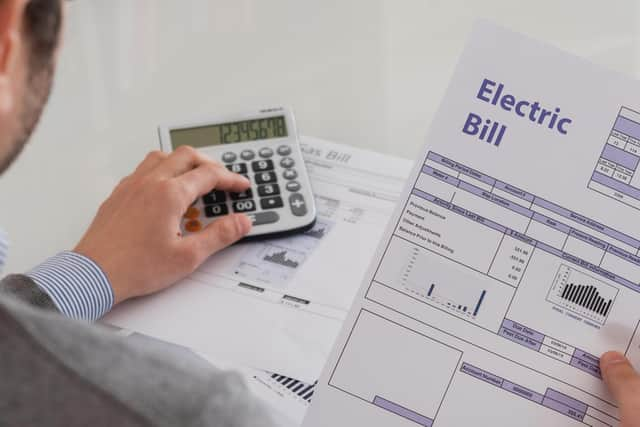Energy Price Cap Announcement: When does the price cap start and what should we expect from it?
Britain’s energy industry regulator, Ofgem, made an announcement for the ‘energy price cap’ on Friday morning (26 August).
British households now face a leap in energy bills from October after Ofgem raised the energy price cap by 80%, taking the average gas and electric bill to £3,549 a year.
Advertisement
Hide AdAdvertisement
Hide AdWhat is the Ofgem energy price cap?


Set out in law in 2018, the ‘price cap’ refers to how much it costs to supply energy to homes by setting a maximum price that suppliers can charge per unit of energy.
Therefore, it ‘caps’ the amount of profit the energy supplier can gain, aiming to offer economic security to millions of households.
When is the price cap announcement (and when will it come into effect)?
The price cap that Ofgem announced on Friday (26 August) will come into effect on 1 October this year.
Afterwards, the energy industry regulator will make later announcements for future quarters on 24 November, 27 February, 26 May and 25 August.
The adjusted prices will then come into effect on 1 January, 1 April, 1 July and 1 October, respective to each announcement date.
What should we expect from the new energy price cap?
Conservative MP Kevin Hollindrake forewarned on Monday that “People are going to be on the streets. Things are going to be that bad for some households.”
The price cap, which already jumped from £1,200 to £1971 in April, could now increase to as much as £3,600, analysts have warned.
Some experts estimate that the energy price cap could rise to well over £5000 by April 2023.
Advertisement
Hide AdAdvertisement
Hide AdIf this trend continues, millions of UK residents could be driven into energy poverty this upcoming winter, forcing them into difficult financial decisions as the cost of heating becomes bitingly expensive.
Why is the energy price cap rising?
The cost of gas was already higher in 2021 due to increased demands following the pandemic, and this economic struggle has further developed.
Low power generation (from renewable sources) drove up demand as required maintenance work for it was also delayed by the pandemic, therefore holding up the supply.
Meanwhile, Russia’s invasion of Ukraine (in late February this year) has worsened the situation as Vladimir Putin’s regime has reduced natural gas supplies this winter after sanctions were imposed on Moscow.
Some countries - reluctant to enter business with Russia - have been forced to adjust their relationship with the country and seek alternatives for natural gas.
This places greater strains on global demands and as such we are seeing an increase in the market costs.
How will the UK address the economic turmoil?
With the UK inflation rate at a 40-year high of 10.1% (with some predicting it to hit 18.6% soon) and consumer goods growing increasingly expensive, it will fall to Liz Truss or Rishi Sunak to address this crisis after a winner is decided on 5 September.
Liz Truss, who appears to be leading the race to become Britain’s next PM, has expressed that tax cuts are the better way to boost an economy approaching recession rather than offering ‘handouts’.
Advertisement
Hide AdAdvertisement
Hide AdRishi Sunak’s headline gesture earlier this year, however, was to reduce £400 off household energy bills, with a £650 one-off payment for roughly 8 million pensioner households (to be paid with their winter fuel payment) and a £150 one-off payment for roughly 6 million UK residents who receive some disability benefits.
Sir Keir Starmer (Labour leader) recently saw a bump in his polls after revealing a plan to ‘freeze’ the energy price cap altogether.
Regardless, the situation appears so dire that CEO Bill Bullen of Utilita Energy called on the Tories to finalise the race early so that a solution to the problem could be arranged as soon as possible for the sake of Britain’s economy and residents.
